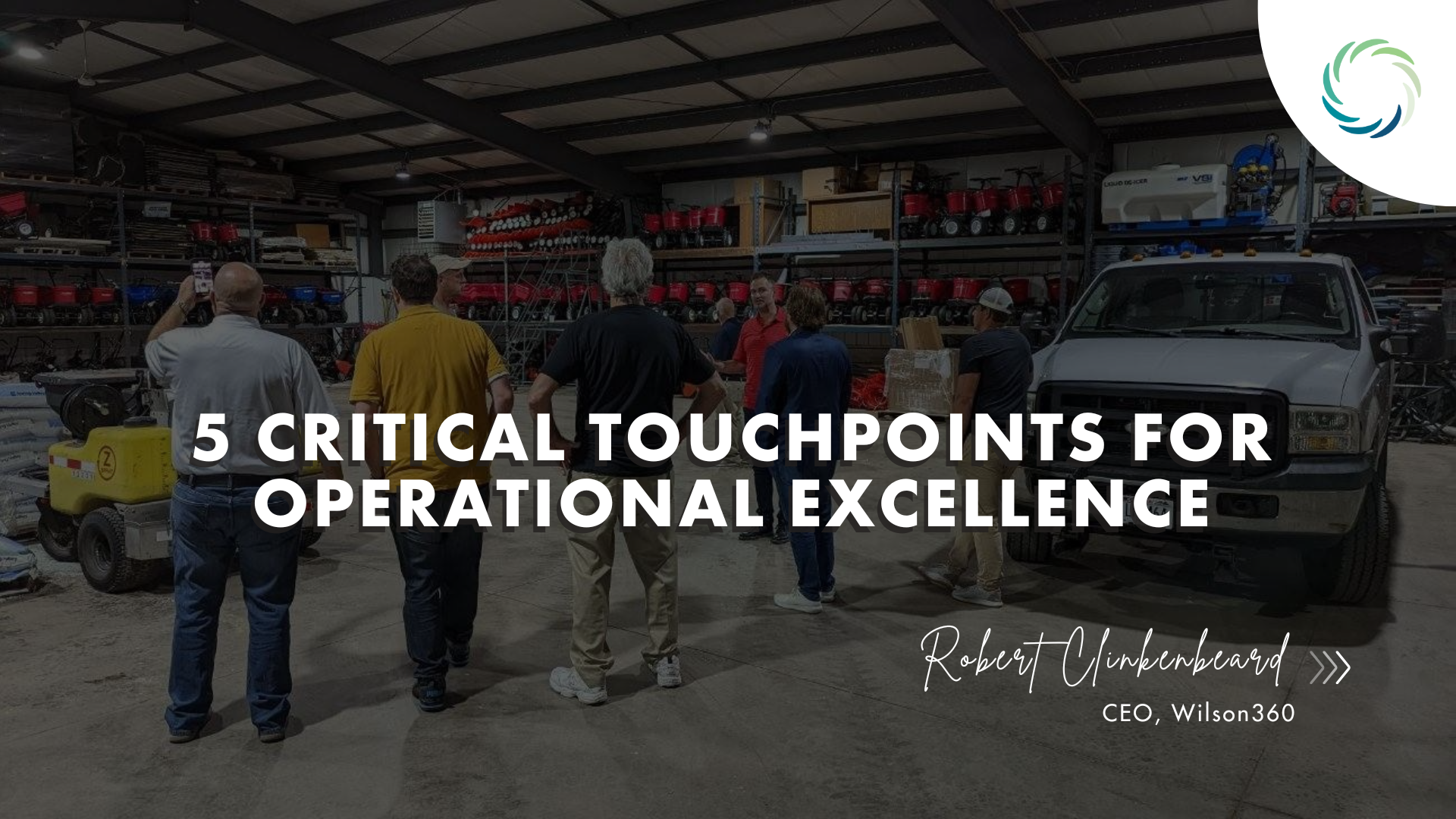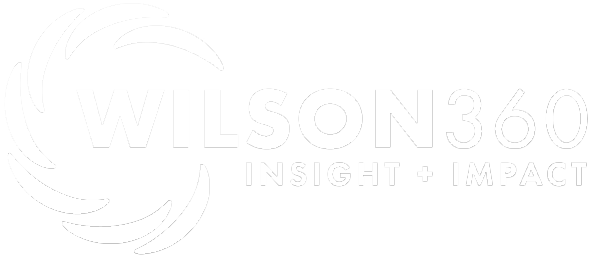
5 Critical Touchpoints for Operational Success
by Robert Clinkenbeard
Navigating the complexities of business management requires a clear understanding of the critical role operational processes and checks and balances play in achieving stability and growth.
At Wilson360, we’ve seen firsthand the advantages that come when businesses prioritize these fundamental practices. Strong systems can transform potential challenges into opportunities for growth and help businesses thrive, even in unpredictable times.
Operational efficiency is about more than keeping the business running smoothly; it’s about creating a strong foundation that enables agility and resilience. Here are five critical touchpoints for operational diligence, presented with practical scenarios:
1. Prevention of Legal Challenges
Scenario:
A business neglects to review contract terms or compliance deadlines and inadvertently violates local regulations. This oversight results in fines and legal disputes that strain client relationships and damage the company’s reputation.
Touchpoint:
By proactively monitoring contracts and compliance, businesses can avoid legal risks and demonstrate accountability. Clear operational protocols reduce the chance of disputes and help build trust with clients and partners.
2. Financial Integrity
Scenario:
A company fails to reconcile its accounts regularly and discovers a major billing error only after a client disputes an invoice. The delay in resolving the issue creates friction in the relationship and disrupts cash flow.
Touchpoint:
Regular financial checks ensure cash flow stability, accurate invoicing, and strong financial health. Vigilance in financial operations prevents discrepancies, paving the way for smarter investments and sustained growth.
3. Reputation Management
Scenario:
A landscaping company overlooks equipment readiness for a snow removal job. When the scheduled crew arrives on-site, they find key machinery malfunctioning, causing delays that lead to unmet client expectations and frustration.
Touchpoint:
Operational diligence, including equipment maintenance and scheduling checks, prevents critical missteps. Businesses that prioritize these practices maintain trust and reliability, reinforcing a positive brand image in competitive markets.
4. Safety and Efficiency in Field Operations
Scenario:
A field crew experiences delays on a job site because safety inspections were skipped, leading to an unexpected equipment failure. The resulting downtime frustrates employees and causes project delays, impacting client satisfaction.
Touchpoint:
Safety protocols and regular maintenance checks create a secure, efficient work environment. By fostering a culture of preparation and planning, businesses enhance productivity, protect employees, and reflect a commitment to operational excellence.
5. Sustainable Growth
Scenario:
A company rapidly expands into a new region without establishing standardized procedures or training. The inconsistent service delivery in the new location causes client dissatisfaction and strains the organization’s resources.
Touchpoint:
Scaling a business successfully requires rigorous checks and balances. Standardized processes and robust training programs ensure consistent quality and compliance, enabling sustainable growth while maintaining core values.
Conclusion
Through experiences with contractors and vendors, we’ve seen how strong operational practices can prevent issues from escalating. Identifying financial discrepancies during early audits, for example, avoided what could have been a significant setback. These proactive measures underscore the value of vigilance in maintaining business stability and integrity.
During the economic downturn from 2008 to 2011, businesses with disciplined operational frameworks were the ones that weathered the storm. Those that thrived were led by teams committed to maintaining high standards and consistent processes.
As a leader, your role isn’t just about building a company; it’s about creating a culture that values diligence and continuous improvement. When checks and balances are embraced as part of your operational mindset, they become a powerful tool for innovation, stability, and lasting success.
About the author: Serial entrepreneur, author, podcaster, and Ironman athlete Robert Clinkenbeard is CEO of green industry consultancy and peer group organization Wilson360. Connect with Robert at [email protected]

